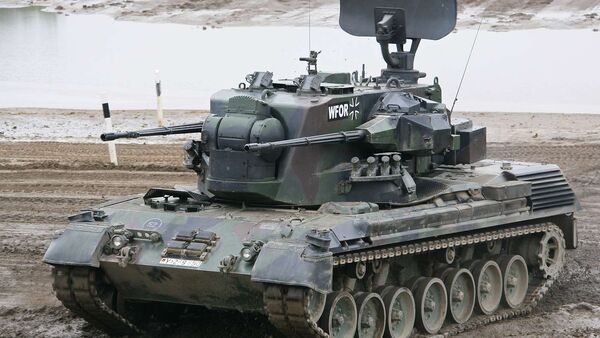
German Army Gepard anti-aircraft system during an exercise in 2010. (Bundeswehr/Marcus Rott)
Countries supplying Ukraine with military equipment are taking measures to prevent Kyiv from running low on ammunition. Meetings of the Ukraine Defense Contact Group and NATO defence ministers in Brussels on 14–15 February addressed the issue.
In a pre-ministerial press conference on 13 February, NATO Secretary General Jens Stoltenberg said, “It is clear that we are in a race of logistics. Key capabilities like ammunition, fuel, and spare parts must reach Ukraine before Russia can seize the initiative on the battlefield. Speed will save lives.
“The war in Ukraine is consuming an enormous amount of munitions, and depleting allied stockpiles,” he noted. “The current rate of Ukraine's ammunition expenditure is many times higher than our current rate of production. This puts our defence industries under strain.”
He cited as an example that “the waiting time for large-calibre ammunition has increased from 12 to 28 months. Orders placed today would only be delivered two-and-a-half years later”.
Stoltenberg called for a ramping up of production and investment in allied production capacity, reporting that NATO had completed an extraordinary survey of allied munitions stockpiles and planned to increase targets for these stockpiles through the NATO defence planning process.
He welcomed the signature by several allies – including the United States and France – of new multi-year contracts with the defence industry enabling it to invest in increased production capacity.
Another ally to do so is Germany, which is for example resuming the production of ammunition for the 32 Gepard self-propelled anti-aircraft guns it has supplied to Ukraine. Attending the 14 February Ukraine Defense Contact Group meeting, German Defence Minister Boris Pistorius said Rheinmetall would produce 300,000 rounds of Gepard ammunition for Ukraine.
Looking to read the full article?
Gain unlimited access to Janes news and more...



